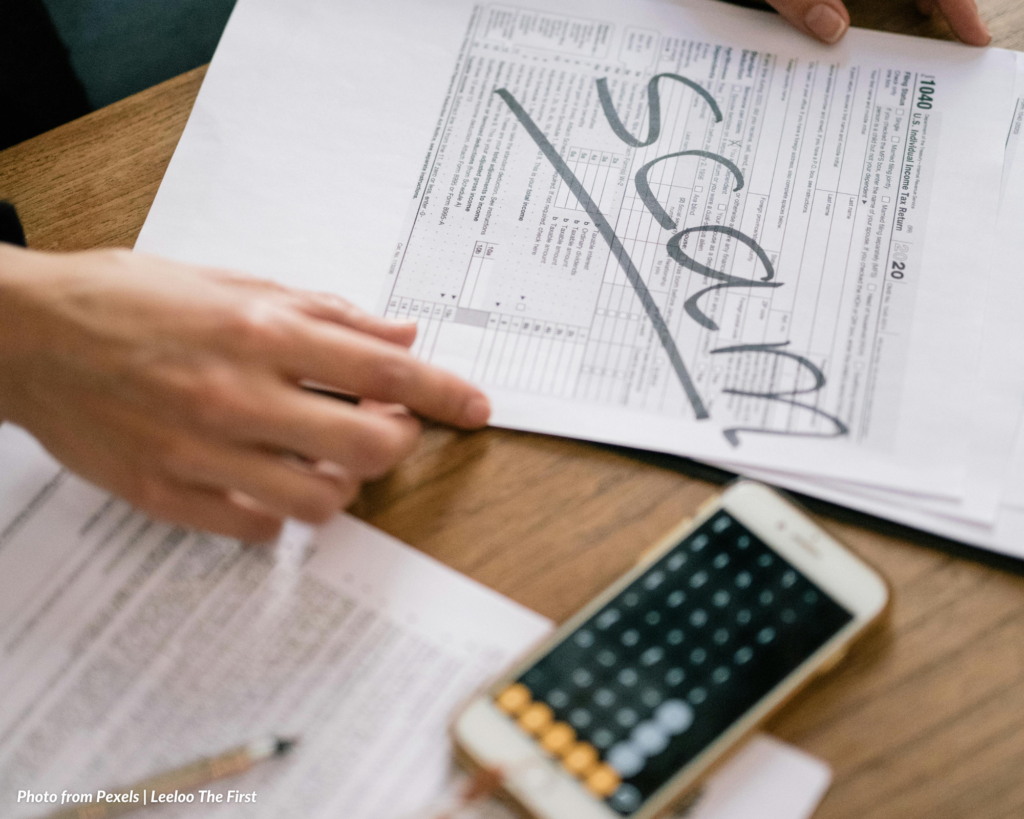
Photo from Pexels | Leeloo The First
The following post does not create a lawyer-client relationship between Alburo Alburo and Associates Law Offices (or any of its lawyers) and the reader. It is still best for you to engage the services of a lawyer or you may directly contact and consult Alburo Alburo and Associates Law Offices to address your specific legal concerns, if there is any.
Also, the matters contained in the following were written in accordance with the law, rules, and jurisprudence prevailing at the time of writing and posting, and do not include any future developments on the subject matter under discussion.
AT A GLANCE:
On July 20, 2024, Republic Act (R.A.) No. 12010 or the “Anti-Financial Account Scamming Act” (AFASA). The salient provisions under the AFASA emphasize the protections afforded to an owner of a financial account, and the concomitant mandate of institutions such as banks, non-banks, payment and financial service provides under the Bangko Sentral ng Pilipinas (BSP) to protect said owner or client’s financial account from prohibited acts constituting financial account scamming.
On July 20, 2024, Republic Act (R.A.) No. 12010 or the “Anti-Financial Account Scamming Act” (AFASA) was passed into law. The AFASA was enacted in recognition of the State’s acknowledgement of the increased need to promote “awareness on the proper use of Financial Accounts and to protect the public from cybercriminals and criminal syndicates who target Financial Accounts or lure Account Owners into becoming accessories or perpetrators of fraudulent activities” (Sec. 2, R.A. 12010).
Verily, the salient provisions under the AFASA emphasize the protections afforded to an owner of a financial account, and the concomitant mandate of institutions such as banks, non-banks, payment and financial service provides under the Bangko Sentral ng Pilipinas (BSP) to protect said owner or client’s financial account from prohibited acts constituting financial account scamming. Some of these salient provisions are listed below.
Prohibited Acts under the AFASA
For the awareness of the public, the AFASA delineates the prohibited acts which constitute financial scamming, and penalizes as well other offenses related to the latter crime. These prohibited acts include: money muling activities; social engineering schemes to gain access to a financial account; and economic sabotage. Persons are also penalized when they wilfully attempt, aid, or abet the commission of the mentioned offenses. Persons who buy or sell a financial account, or who open a financial account under a fake name or the identity or identification documents of another, are also punished by the AFASA. (Secs. 4-5, R.A. 12010)
Responsibility of Institutions to Protect Access to Client’s Financial Account
Institutes are mandated to ensure that access to their clients’ Financial Account is protected by adequate risk management systems and controls, which are commensurate to the nature, size, and complexity of their operations. These institutions shall be liable for restitution of funds to the Account Owners for failure to employ adequate risk management systems and controls, or failure to exercise the highest degree of diligence in preventing loss or damage arising from the offenses penalized by the AFASA. (Secs. 6, R.A. 12010)
Holding of Funds Subject to Disputed Transactions
The AFASA likewise provides that Institutions have the authority to temporarily hold funds subject of a disputed transaction – or transactions which appear to be unusual, without clear economic purpose, or from unknown or unlawful source or activity, or similar grounds.
(Secs. 7-11, R.A. 12010)
Investigation and Inquiry into Financial Accounts
The BSP shall have the authority to investigate and inquire into Financial Accounts which may be involved in the commission of a prohibited act or offense under the AFASA, and provisions of Republic Act No. 1405, as amended; Republic Act No. 6426, as amended; Republic Act No. 8367; and Republic Act No. 10173 shall not apply to Financial Accounts subject of BSP’s investigation. (Sec. 12, R.A. 12010)
Jurisdiction of the Regional Trial Court (RTC)
The RTC shall have jurisdiction over any violation of the AFASA. Jurisdiction shall lie if any of the elements was committed within the Philippines or committed with the use of any device, tool, equipment, computer system or infrastructure, wholly or partly situated in the country, or when by such commission, damage is caused to a natural or juridical person who was in the Philippines at the time the offense was committed or whose Financial Account is maintained with an Institution operating in the Philippines. (Sec. 21, R.A. 12010)
RELATED ARTICLES:
How the Internet Transactions Act of 2023 Protects Online Consumers and Merchants
Cybersecurity Awareness Month (Proclamation No. 2054, s. 2010)
Click here to subscribe to our newsletter
Alburo Alburo and Associates Law Offices specializes in business law and labor law consulting. For inquiries regarding legal services, you may reach us at info@alburolaw.com, or dial us at (02)7745-4391/ 0917-5772207/ 09778050020.
All rights reserved.


